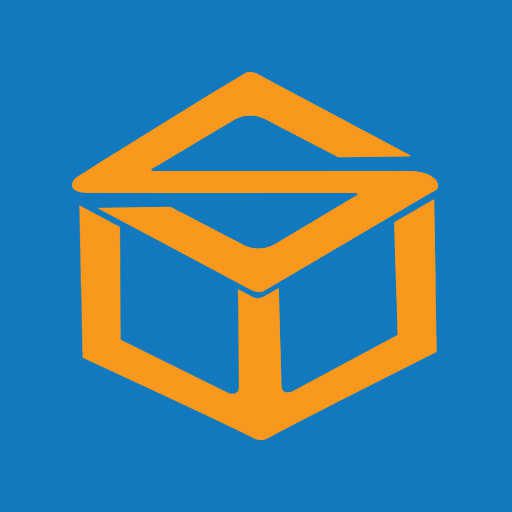Description

Elastic Path

Inoday eCommerce Solution
Comprehensive Overview: Elastic Path vs Inoday eCommerce Solution
Elastic Path Overview
a) Primary Functions and Target Markets:
-
Primary Functions: Elastic Path is a headless commerce platform that enables businesses to create highly customizable and scalable eCommerce solutions. Its primary functions include managing product catalogs, processing transactions, and integrating with various front-end interfaces through APIs. The platform emphasizes flexibility, allowing businesses to tailor their digital commerce experiences to fit unique customer needs and complex business models.
-
Target Markets: Elastic Path primarily targets medium to large enterprises that require customized commerce solutions. It is well-suited for organizations in industries such as retail, manufacturing, telecommunications, and software, where businesses often need to integrate their commerce capabilities with other complex systems and services. It also caters to companies seeking rapid innovation without being constrained by traditional eCommerce platform limitations.
b) Market Share and User Base:
- Elastic Path is considered a niche player in the broader eCommerce platform market. Its market share is smaller compared to major players like Shopify, Magento, or Salesforce Commerce Cloud, largely because it caters to specific enterprise needs rather than mass-market eCommerce solutions. However, its targeted approach allows it to have a solid user base among large enterprises that require a high degree of flexibility and customization in their commerce operations.
Inoday eCommerce Solution Overview
a) Primary Functions and Target Markets:
-
Primary Functions: Inoday eCommerce Solution is part of a broader suite of IT solutions and consulting services offered by Inoday. The eCommerce solution focuses on providing end-to-end eCommerce capabilities, including online store development, payment gateway integration, inventory management, and SEO optimization. It is designed to enhance the overall eCommerce performance of businesses through custom solutions and integration with other systems like ERP and CRM.
-
Target Markets: Inoday targets small to mid-sized businesses that require cost-effective eCommerce solutions. Its solutions are particularly appealing to businesses looking for professional IT consulting to streamline their eCommerce operations without the extensive resources larger enterprises might have.
b) Market Share and User Base:
- Given that Inoday is a consulting firm providing bespoke eCommerce solutions, it does not hold a specific market share in the way standalone eCommerce platforms do. Its user base consists mainly of small to mid-sized enterprises looking for tailor-made solutions to improve their online sales and operational efficiency across various industries.
Key Differentiating Factors
Elastic Path:
-
Headless Architecture: Elastic Path is a pioneer in headless commerce, allowing businesses to decouple the front-end interface from the back-end commerce functionalities. This provides greater flexibility in designing customer experiences.
-
Enterprise Focus: It specifically targets large enterprises with complex and evolving eCommerce requirements, offering solutions that are robust and scalable.
-
Microservices-Based: By leveraging a microservices architecture, Elastic Path allows businesses to implement specific functionalities without overhauling the entire system, facilitating easier and more targeted updates and innovations.
Inoday eCommerce Solution:
-
Consulting and Custom Solutions: Inoday offers personalized consulting services to create tailored eCommerce solutions, which can be especially beneficial for businesses needing guidance through the digital transformation process.
-
Integration with ERP/CRM: The solution emphasizes seamless integration with existing enterprise systems like ERP and CRM, focusing on operational efficiency and data consistency.
-
Cost-Effective for SMEs: Inoday's solutions are particularly appealing for small to mid-sized enterprises that need a robust online presence without the high cost of enterprise-grade platforms like Elastic Path.
In summary, while Elastic Path focuses on providing highly customizable and scalable solutions for large enterprises through a headless architecture, Inoday offers more cost-effective and integrated consulting-driven eCommerce solutions targeted at SMEs looking for tailored support and integration.
Contact Info

Year founded :
2000
+1 604-761-7862
Not Available
Canada
http://www.linkedin.com/company/elastic-path-software

Year founded :
Not Available
Not Available
Not Available
Not Available
Not Available
Feature Similarity Breakdown: Elastic Path, Inoday eCommerce Solution
To provide a thorough feature similarity breakdown for Elastic Path and Inoday eCommerce Solution, let's dissect based on common features, user interface comparisons, and unique features.
a) Core Features in Common
-
Product Management:
- Both platforms likely offer robust product management features, including catalog management, inventory controls, and pricing strategies.
-
Order Management:
- Each solution supports comprehensive order management systems, handling tasks from order creation to fulfillment and tracking.
-
Customer Management:
- They provide tools for managing customer accounts, purchase history, and customer service interactions.
-
Multi-Channel Support:
- Elastic Path and Inoday eCommerce Solutions cater to selling across various channels—web, mobile, and potentially physical stores.
-
Integration Capabilities:
- Both are expected to offer strong integration capabilities with existing ERP, CRM, and marketing tools to streamline business processes.
-
Payment Processing:
- Multiple payment gateway integrations to facilitate seamless transactions are a common feature.
-
Promotions and Marketing Tools:
- Each solution supports running promotions, discounts, and marketing campaigns to boost sales.
-
Security Features:
- Both platforms prioritize security with features like SSL certification, GDPR compliance, and other necessary eCommerce security standards.
b) User Interface Comparisons
-
Elastic Path:
- Known for its headless commerce approach, it allows businesses to have complete control over the front-end user experience. This flexibility means companies can customize their interface to match specific branding and user experience requirements.
-
Inoday eCommerce Solution:
- Typically integrated with NetSuite solutions, it may offer a more standardized interface with familiar NetSuite aesthetics. It might focus on ease of use and aligning closely with NetSuite’s ERP functionalities.
-
Comparison:
- Elastic Path’s UI is geared towards developers and companies that want full customization. It offers APIs and microservices to help create unique front-end applications.
- Inoday, leveraging NetSuite’s UI strengths, possibly offers a more out-of-the-box solution leveraging familiar layouts and interfaces to streamline usability.
c) Unique Features
-
Elastic Path Unique Features:
- Headless Commerce: Elastic Path’s core selling point is its headless commerce framework, allowing businesses to decouple the front end from the back-end commerce capabilities. This results in greater flexibility for creating unique user experiences and integrating with other digital platforms.
- Composable Commerce: This approach allows businesses to select and integrate best-of-breed solutions to create their ideal system.
-
Inoday eCommerce Solution Unique Features:
- NetSuite Integration: A key strength is its seamless integration with NetSuite’s suite of business applications, which can be highly beneficial for businesses already using NetSuite ERP and CRM systems.
- Customization within NetSuite Framework: Offers extensive customization capabilities within the NetSuite environment, facilitating smooth data flow and enhanced operational efficiencies.
In conclusion, while both Elastic Path and Inoday eCommerce Solutions share a variety of core eCommerce functionalities, they cater to different market needs and operational styles. Elastic Path offers a flexible, headless commerce model ideal for large enterprises needing complex custom setups, while Inoday provides an embedded solution within NetSuite, excellent for businesses looking to leverage existing ERP investments.
Features

Product Management
Analytics and Reporting
Order Management
Customer Experience
Integration and Extensibility

Analytics and Reporting
Product Management
Customer Experience
Marketing Tools
User-Friendly Interface
Best Fit Use Cases: Elastic Path, Inoday eCommerce Solution
Elastic Path and Inoday eCommerce Solution both cater to specific needs within the eCommerce arena, each offering unique strengths that make them suitable for particular business scenarios and industry verticals.
Elastic Path
a) Best Fit Use Cases:
-
Complex Omnichannel Experiences:
- Description: Elastic Path excels in delivering flexible and highly customizable eCommerce solutions, making it ideal for businesses that need to integrate various sales channels into a seamless omnichannel experience.
- Example: Retail companies with both online and brick-and-mortar stores looking to unify the shopping experience across platforms.
-
Businesses Requiring Extensive Customization:
- Description: Elastic Path's API-first architecture allows for deep customization and tailored solutions, which is ideal for businesses with complex requirements that cannot be met by out-of-the-box solutions.
- Example: Enterprises with unique workflows, bespoke product configurations, or specific customer journey requirements.
-
Enterprises with Existing Ecosystems:
- Description: Companies that have existing systems and need their eCommerce platform to integrate well with existing ERP, CRM, or other backend systems.
- Example: Large corporations wanting to keep current technology investments by integrating new eCommerce functionalities.
d) Industry Verticals and Company Sizes:
- Industry Verticals: Elastic Path is suitable for retail, manufacturing, telecommunications, and any sector that requires personalized customer experiences and integrations with complex enterprise systems.
- Company Sizes: Typically favored by mid to large-sized enterprises due to the technical demands and scale of customization possible.
Inoday eCommerce Solution
b) Preferred Scenarios:
-
Small to Medium Businesses (SMBs):
- Description: Inoday eCommerce Solution often caters to small and medium-sized businesses looking for a cost-effective, efficient, and easy-to-deploy eCommerce platform.
- Example: Startups or SMBs needing a functional eCommerce platform without the need for extensive development resources.
-
Businesses Seeking Integrated Microsoft Solutions:
- Description: Inoday specializes in Microsoft Dynamics solutions, making it an ideal choice for businesses heavily invested in Microsoft’s suite of products, such as Dynamics ERP or CRM.
- Example: Companies looking for seamless integration between their eCommerce and Microsoft-based business processes.
-
Businesses Requiring Rapid Deployment:
- Description: Companies needing to go to market quickly with a ready-to-use eCommerce solution will find Inoday’s offerings compelling.
- Example: Retailers looking to launch an online presence without significant delays.
d) Industry Verticals and Company Sizes:
- Industry Verticals: Inoday serves retail, wholesale distribution, and manufacturing sectors, especially those leveraging Microsoft Dynamics alongside their eCommerce operations.
- Company Sizes: While it can serve any business size, it particularly suits SMBs due to its affordability and ease of integration with Microsoft solutions.
In summary, Elastic Path shines in complex, customizable, enterprise environments requiring robust integrations, while Inoday provides SMBs and Microsoft-centric businesses with rapid, integrated, and efficient eCommerce solutions. Each caters specifically to different needs based on industry verticals and company size, thus providing tailored solutions for their respective audiences.
Pricing

Pricing Not Available

Pricing Not Available
Metrics History
Metrics History
Comparing teamSize across companies
Conclusion & Final Verdict: Elastic Path vs Inoday eCommerce Solution
Conclusion and Final Verdict for Elastic Path vs. Inoday eCommerce Solution
When evaluating Elastic Path and Inoday eCommerce Solution, it's essential to consider factors such as functionality, scalability, customization, integration capabilities, and cost-effectiveness. Here is a detailed analysis to help determine the best overall value, the pros and cons of each, and recommendations for potential users.
a) Best Overall Value
Elastic Path generally offers the best overall value for businesses that require a flexible, API-driven solution that can handle complex, large-scale eCommerce operations. It is particularly suitable for enterprises looking for headless commerce solutions where they can have complete control over the front-end experience.
Inoday eCommerce Solution might be more suitable for small to medium-sized businesses that prioritize ease of use and integration with other ERP systems like NetSuite. It tends to provide a more budget-friendly solution for businesses that perhaps do not need the extensive customization capabilities offered by Elastic Path.
b) Pros and Cons
Elastic Path Pros:
- Headless Architecture: Provides high levels of flexibility and customization, enabling businesses to create unique customer experiences across various touchpoints.
- Scalability: Designed to handle large-scale operations and can easily scale as businesses grow.
- APIs and Integration: Strong API framework facilitating seamless integration with a wide range of third-party applications and platforms.
- Enterprise Focused: Ideally suited for larger companies with complex business requirements.
Elastic Path Cons:
- Complexity: Might require more technical expertise to implement and manage effectively.
- Cost: Higher initial investment and total cost of ownership, which might be prohibitive for smaller businesses.
Inoday eCommerce Solution Pros:
- Ease of Use: Generally more straightforward implementation and user-friendly interface, which can be advantageous for smaller teams or businesses new to eCommerce.
- Integration with ERP: Seamless integration with NetSuite and other ERP systems enhances operational efficiency for businesses using these platforms.
- Cost-Effective: Lower cost of entry compared to Elastic Path, making it accessible for small to medium businesses.
Inoday eCommerce Solution Cons:
- Limited Customization: Less flexibility in terms of customization compared to a headless solution like Elastic Path.
- Scalability Constraints: May not be as scalable for very large or rapidly growing enterprises.
c) Recommendations
-
Assess Business Needs: Businesses should clearly define their eCommerce requirements, such as the need for scalability, customization, and integration with existing systems, before making a decision.
-
Technical Expertise: Consider the level of technical expertise within your team. Elastic Path might require a skilled IT team for implementation and ongoing management, while Inoday offers a more straightforward setup.
-
Future Growth: For large enterprises or those with aggressive growth plans, Elastic Path could offer the necessary infrastructure. Conversely, if a business is smaller or has more modest growth expectations, Inoday might provide sufficient functionalities without the steep investment.
-
Budget Constraints: Determine your budget for both initial setup and ongoing costs. Elastic Path might require a higher investment but provides more robust capabilities, whereas Inoday offers a more budget-friendly alternative with its own set of benefits.
In conclusion, the choice between Elastic Path and Inoday eCommerce Solution should be guided by the specific needs, size, and growth trajectory of the business. Elastic Path emerges as the leading option for larger enterprises requiring a versatile, scalable, and highly customizable platform. In contrast, Inoday provides excellent value for smaller businesses seeking a cost-effective solution with easy ERP integration.
Add to compare
Add similar companies



